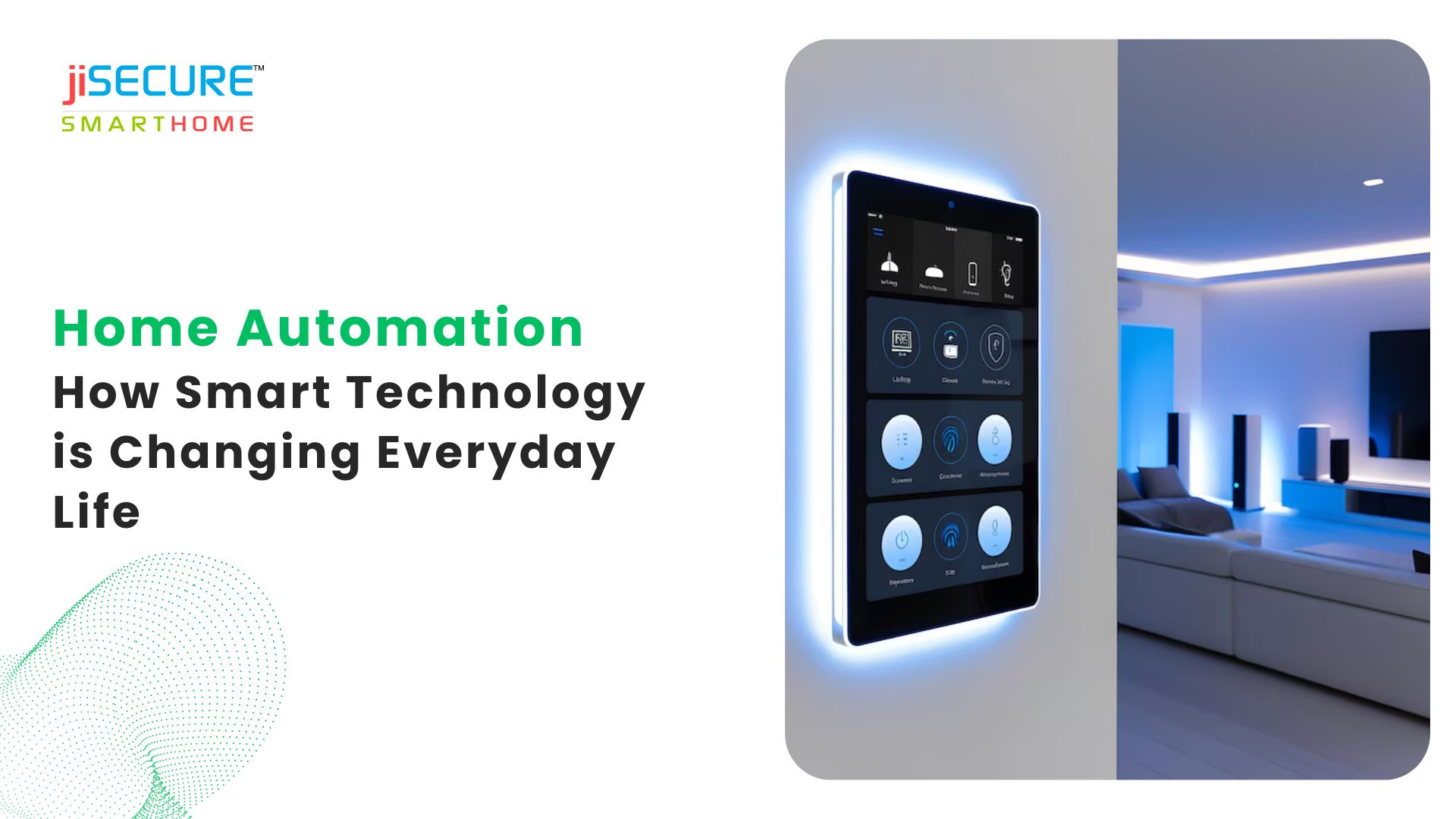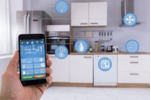- Apr 24, 2025
Share this post on:

In today's fast-paced world, technology continues to evolve, reshaping the way we live. One of the most significant advancements is home automation, which integrates smart technology into our daily routines, enhancing convenience, security, and efficiency.This article explores how home automation is transforming everyday life, making our homes smarter and our lives more comfortable.
Understanding Home Automation
Home automation refers to the use of technology to control various household systems and appliances, such as lighting, heating, cooling, security, and entertainment, through centralized or remote means.By connecting these systems to the internet, homeowners can manage them via smartphones, tablets, or voice-activated assistants, allowing for seamless control and monitoring.
Key Benefits of Home Automation
Enhanced Security and Safety
Smart home systems integrate security devices like cameras, motion sensors, and smart locks, providing real-time monitoring and alerts. This integration allows homeowners to monitor their property remotely, receive immediate notifications about suspicious activities, and take prompt action, thereby enhancing overall home security.
Improved Energy Efficiency
Home automation contributes to energy savings by optimizing the use of heating, cooling, and lighting systems. Smart thermostats adjust temperatures based on occupancy and time of day, while automated lighting ensures that lights are only on when needed. These features reduce energy consumption and lower utility bills.
Increased Convenience
Automating routine tasks simplifies daily life. For instance, smart lighting can adjust based on the time of day or personal preferences, and automated window treatments can open or close according to the weather or schedule. This level of customization enhances comfort and convenience.
Time Savings
By automating repetitive tasks, such as watering the garden or vacuuming the floor, homeowners can free up time for more important activities. Smart scheduling ensures that appliances operate according to the household's routine, further streamlining daily chores.
Improved Home Management
Home automation systems provide insights into household operations, such as energy usage patterns and appliance performance. This data enables homeowners to make informed decisions about energy consumption, maintenance needs, and overall home management, leading to a more efficient and organized household.
Remote Access and Control
With home automation, homeowners can control various systems remotely via mobile devices. Whether it's adjusting the thermostat while on vacation or checking security camera feeds while at work, remote access provides peace of mind and flexibility.
Personalized Comfort
Smart home systems allow for the customization of settings to suit individual preferences. For example, lighting scenes can be created for different activities, and temperature settings can be adjusted for each room, ensuring personalized comfort throughout the home.
Health and Wellness Monitoring
Integration with health-monitoring devices enables smart homes to track vital signs, sleep patterns, and physical activity. This information can be used to promote healthier lifestyles by providing insights and reminders for health-related tasks.
Increased Property Value
Homes equipped with smart automation systems are often more attractive to potential buyers. The convenience, security, and energy efficiency offered by these systems can increase a property's market value and appeal, making it a worthwhile investment for homeowners.
Enhanced Entertainment Experiences
Integrated entertainment systems allow for seamless control of audio and video devices throughout the home. Homeowners can enjoy immersive experiences with minimal effort, adjusting settings to suit different activities and preferences.
Challenges and Considerations
While the benefits of home automation are substantial, there are several challenges and considerations to keep in mind:
Privacy and Security Concerns: Connected devices can be vulnerable to hacking and data breaches.It's essential to implement robust security measures, such as strong passwords and regular software updates, to protect personal information.
Compatibility Issues: Integrating devices from different manufacturers may lead to compatibility problems.Choosing devices that adhere to common standards and protocols can mitigate this issue.
Cost of Implementation: While prices for smart devices have decreased, the initial investment for a comprehensive home automation system can be significant.However, the long-term savings in energy costs and increased property value can offset the initial expenditure.
User Learning Curve: Adapting to new technology may require a learning period.User-friendly interfaces and customer support can ease this transition.
The Future of Home Automation
The evolution of home automation is ongoing, with advancements in artificial intelligence (AI), machine learning, and the Internet of Things (IoT) driving further innovations. Future developments may include more predictive systems that anticipate user needs, enhanced interoperability between devices, and greater integration with renewable energy sources, contributing to more sustainable living environments.
Conclusion
Home automation is more than just a trend; it's a transformation in how we interact with our living spaces.By integrating smart technology into our homes, we can enjoy enhanced security, improved energy efficiency, increased convenience, and a higher quality of life. As technology continues to advance, the possibilities for home automation are expanding, promising even greater innovations in the way we live.










